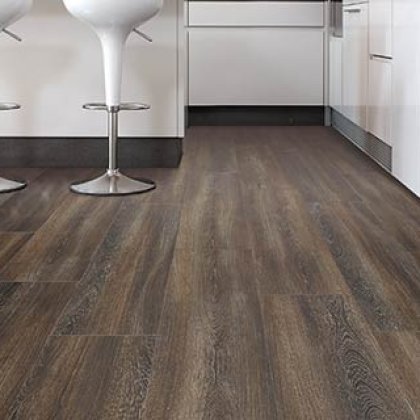Decode Laminate Flooring AC Ratings: Choose the Best Quality

Choosing the right laminate flooring for your space isn't just about the color or style; it's crucial to understand its durability. That's where the AC rating comes in, a standard used since the 1990s to gauge laminate's resistance to wear, impact, and moisture. This guide breaks down what each AC rating means, from AC1 for light residential use to AC5 for heavy commercial traffic, helping you make an informed decision that ensures your floor withstands the test of time and activity. Dive into the world of laminate flooring AC ratings with us and select your flooring with confidence.
Key Takeaways
- AC ratings are a key guide to choosing durable laminate flooring. Look for the right AC rating to match your room's traffic.
- High-traffic areas like living rooms need at least AC3, while bedrooms can do with AC1 or AC2.
- The durability scale, from AC1 to AC5, tells you how well flooring stands up to wear and tear.
- Tests for AC ratings check for things like scratches, stains, and impact to ensure quality.
- Besides the AC rating, consider the room's use, moisture levels, and your home's style.
- Remember, a higher AC rating often means a higher price but also longer-lasting floors.
What Are AC Ratings
AC Definition
AC ratings stand for Abrasion Criteria ratings. They tell us how tough laminate flooring is.
Laminate floors get tested to see how well they can handle wear and tear. This test gives them an AC rating.
Rating Scale
The scale goes from AC1 to AC5. Each number tells us something important about the floor's strength.
AC1 means the floor is good for rooms that don't get a lot of foot traffic. Like bedrooms.
AC2 is for more visited areas but still in homes. Think living rooms or dining areas.
AC3 works for any room in a house. It's also okay for light business use.
AC4 is tougher. It's made for general business use. Offices and cafes are good examples.
AC5 is the strongest. It's meant for heavy traffic in public areas. Like department stores or busy offices.
Each step up means the floor can handle more bumps, scratches, and people walking on it.
Choosing the right AC rating means your floor will look good and last longer. It helps you match the floor to how you'll use the room.
Understanding Laminate Durability Scale
AC1 Rating
AC1-rated floors are best for light residential use. They fit well in rooms that don't see much foot traffic. Think of places like adult bedrooms or dining rooms. These areas are less likely to have heavy objects dropped on them or high amounts of dirt and grit tracked across the floor.
Homes with less activity will benefit from AC1 flooring. It's more affordable but still offers durability where it counts.
AC3 Rating
AC3 stands out as the sweet spot for most homes and some businesses. It's tough enough for areas with lots of walking, like living rooms, kitchens, and hallways in homes. AC3 can also handle lighter commercial spaces. This might include small offices or hotel rooms.
This rating ensures a good balance between cost and resilience. It's ideal for families looking for long-lasting floors without breaking the bank.
AC5 Rating
For the toughest environments, AC5-rated laminate is the way to go. This level is designed for heavy commercial use. Large shopping centers, public buildings, and busy offices need this kind of durability.
AC5 can withstand high amounts of foot traffic and frequent spills or impacts. Despite its strength, it comes in various styles to match any decor.
Tests for AC Ratings
Abrasion Test
Abrasion tests check how well laminate floors stand up to wear. They use special machines to rub the flooring and see how it holds up. This shows if the floor can handle lots of foot traffic.
Impact Test
Impact tests measure how strong laminate flooring is when something hits it. They drop heavy objects on the floor to mimic real-life accidents. Floors with high AC ratings don't dent easily.
Stain Resistance
Stain resistance tests are crucial. They put different substances on the floor to see if they stain. Good laminate flooring won't stain from spills like coffee or wine.
Moisture Resistance
Moisture resistance is key for laminate floors. These tests expose floors to water to see if they warp or swell. High moisture resistance means a floor is more durable and lasts longer in kitchens or bathrooms.
Burn Resistance
Burn resistance tests check how floors react to heat. They see if the flooring can resist burns from cigarettes or hot pots. This is important for safety in homes.
Laminate flooring needs to pass these tests to get an AC rating. The higher the AC rating, the tougher the floor is. It's vital to choose a floor that matches your home's needs.
Choosing the Right AC Rating
Room Traffic
Think about how busy your room is. Rooms with lots of people walking through need tough floors.
For places like living rooms or playrooms, pick a higher AC rating. This means the floor can handle more steps and play.
Use Type
Match the AC rating to where you'll use it. Homes and businesses need different types of floors.
For your house, AC1 or AC2 might be enough. But for a shop or office, you might need AC4 or AC5. This helps the floor last longer.
Key Areas
e parts of your home need stronger floors. Kitchens and hallways are two examples.
In these areas, choose a higher AC rating. It makes sure the floor can take spills and lots of walking. This keeps your floor looking good for years.
Additional Considerations
Warranty Check
It's vital to read the warranty before buying. This ensures you know what's covered.
Warranties differ among brands. They protect against wear, stains, and fading. Always check this first.
Aesthetic Choice
Your floor should look good and last long. Choose a style you love that matches your home.
Think about color and texture. These affect the room's feel. Don't just focus on durability.
Professional Help
A skilled installer makes a big difference. They ensure your floor lasts longer.
Trying to install it yourself can lead to mistakes. These errors might void the warranty. Always go for professional installation.
Final Remarks
Choosing the right laminate flooring is all about understanding AC ratings. These ratings tell you how tough your floor will be. We've walked you through what AC ratings mean, how they're tested, and how to pick the perfect one for your space. Plus, we've touched on extra tips to keep in mind. This knowledge sets you up for a smart buy, ensuring your floors look great and last long. No more guesswork or crossing fingers. With this guide, you're equipped to make choices that fit your lifestyle and your budget.
Ready to transform your space with the perfect laminate flooring? Dive in with confidence, knowing exactly what AC rating suits your needs. Your ideal floor is just a decision away. Start exploring options now and step into a more durable, beautiful home.
Frequently Asked Questions
What does AC rating mean for laminate flooring?
AC rating is a standard that measures the durability of laminate flooring, indicating its resistance to wear, impact, stains, and fading. It helps consumers choose the right laminate based on usage and traffic levels.
How is the AC rating determined for laminate floors?
The AC rating is determined through a series of tests that assess the laminate's ability to withstand wear, impact, staining, and moisture. Floors must pass these tests to earn their AC rating, which ranges from AC1 to AC6.
What is the best AC rating for residential use?
For residential use, an AC3 or AC4 rating is typically recommended. AC3 is suitable for most home areas, while AC4 can handle higher traffic zones like hallways and kitchens.
Can I use AC4 rated laminate in commercial settings?
Yes, AC4 rated laminate is designed for commercial use with moderate foot traffic. It's ideal for small offices or boutiques but might not suffice for high-traffic commercial spaces.
Are higher AC ratings more expensive?
Generally, yes. Higher AC-rated laminates are more durable and offer greater protection against wear and tear, leading to a higher price point. However, they may offer better long-term value due to their longevity.
Do all laminate floors come with an AC rating?
Yes, all laminate floors should have an AC rating. This standardized rating helps consumers understand the durability and suitability of laminate flooring for various applications.
What additional considerations should I keep in mind when choosing laminate flooring?
Beyond the AC rating, consider the thickness of the laminate, its water resistance, warranty period, and compatibility with underfloor heating systems. These factors can significantly impact your satisfaction and the flooring's performance over time.

















